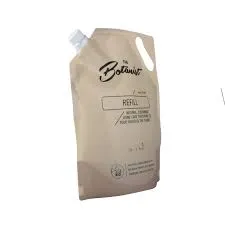- Afrikaans
- Albanian
- Amharic
- Arabic
- Armenian
- Azerbaijani
- Basque
- Belarusian
- Bengali
- Bosnian
- Bulgarian
- Catalan
- Cebuano
- chinese_simplified
- chinese_traditional
- Corsican
- Croatian
- Czech
- Danish
- Dutch
- English
- Esperanto
- Estonian
- Finnish
- French
- Frisian
- Galician
- Georgian
- German
- Greek
- Gujarati
- haitian_creole
- hausa
- hawaiian
- Hebrew
- Hindi
- Miao
- Hungarian
- Icelandic
- igbo
- Indonesian
- irish
- Italian
- Japanese
- Javanese
- Kannada
- kazakh
- Khmer
- Rwandese
- Korean
- Kurdish
- Kyrgyz
- Lao
- Latin
- Latvian
- Lithuanian
- Luxembourgish
- Macedonian
- Malgashi
- Malay
- Malayalam
- Maltese
- Maori
- Marathi
- Mongolian
- Myanmar
- Nepali
- Norwegian
- Norwegian
- Occitan
- Pashto
- Persian
- Polish
- Portuguese
- Punjabi
- Romanian
- Russian
- Samoan
- scottish-gaelic
- Serbian
- Sesotho
- Shona
- Sindhi
- Sinhala
- Slovak
- Slovenian
- Somali
- Spanish
- Sundanese
- Swahili
- Swedish
- Tagalog
- Tajik
- Tamil
- Tatar
- Telugu
- Thai
- Turkish
- Turkmen
- Ukrainian
- Urdu
- Uighur
- Uzbek
- Vietnamese
- Welsh
- Bantu
- Yiddish
- Yoruba
- Zulu
custom foams
Custom Foams Tailoring Comfort and Functionality for Every Need
In today's world, customization is key, especially when it comes to meeting individual requirements for comfort and functionality. One area where customization has made significant strides is in the production of foams. Custom foams have become an integral part of various industries, from healthcare to automotive, furniture manufacturing, and even aerospace, providing tailored solutions that enhance performance and user experience.
Understanding Custom Foams
Custom foams are specialized foam products that are designed and manufactured to meet specific requirements. These can include varying degrees of firmness, density, and support characteristics based on the intended application. The foams can be made from different materials, including polyurethane, memory foam, latex, and polyethylene, each offering unique properties that cater to various needs.
The process of creating custom foam begins with a thorough assessment of the client's needs. This often involves discussions about the intended use, desired attributes, and any specific challenges that the foam must address. Once the requirements are established, manufacturers can begin developing foam that meets these criteria, resulting in a product that is not only functional but also enhances the overall user experience.
Applications of Custom Foams
1. Healthcare Industry Custom foams are widely used in the healthcare sector for products like mattresses, cushions, and seating pads. They play a crucial role in providing comfort for patients and can also help prevent pressure sores. Memory foam, known for its contouring properties, is particularly popular for hospital beds, ensuring that patients receive the support they need during recovery.
2. Furniture Manufacturing In the furniture industry, custom foams are essential for creating comfortable seating solutions. Sofas, chairs, and mattresses are designed with specific foam densities that provide the right balance of support and comfort. Custom foam allows furniture manufacturers to cater to consumer preferences, enabling them to create products that meet market demands and enhance customer satisfaction.
3. Automotive Industry In the automotive sector, custom foams are used in the production of seats, headliners, and insulation. The right foam can significantly enhance the comfort of passengers, reduce noise, and improve overall vehicle performance. Custom foams are designed to endure various environmental conditions, ensuring durability and longevity.
4. Aerospace Applications The aerospace industry relies heavily on custom foams for a variety of applications, ranging from seat cushions to packaging materials for sensitive equipment. The lightweight and resilient properties of custom foams help in reducing overall aircraft weight while providing necessary protection and comfort.
custom foams

5. Sports and Recreation Custom foams are also utilized in the production of sports equipment, such as protective padding in football helmets or cushioning in running shoes. The ability to tailor foam properties to specific athletic requirements not only enhances performance but also increases safety for athletes.
The Benefits of Custom Foams
The primary advantage of custom foams is their ability to meet specific needs. Standard foam products may not provide the optimal solution for every application, but custom foams can be engineered to deliver the exact features required. Some key benefits include
- Enhanced Comfort Custom foams can be designed to match personal comfort preferences, making them ideal for applications like mattresses and seating.
- Improved Performance Tailoring foam properties can enhance the functionality of a product, whether it be maximizing insulation, reducing weight, or improving durability.
- Increased Safety In industries such as healthcare and sports, custom foams can provide better protection against injuries, creating safer environments for users.
- Cost-Effectiveness Although the initial investment in custom foams may be higher, the long-term benefits of durability and performance often offset the costs, particularly in industries where quality is paramount.
Conclusion
In conclusion, custom foams are shaping the way products are designed and manufactured across a variety of industries. Their ability to cater to specific needs makes them invaluable in enhancing comfort, functionality, and safety. As technology continues to advance, the possibilities for custom foam applications are endless, paving the way for innovative solutions that can significantly improve human experience and productivity. Whether you're in healthcare, automotive, or furniture manufacturing, embracing custom foams could be the key to unlocking new levels of comfort and efficiency.













